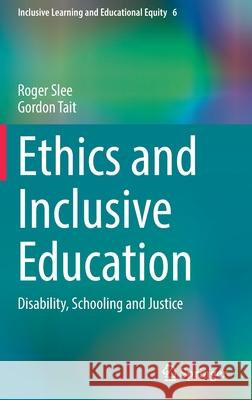Ethics and Inclusive Education: Disability, Schooling and Justice » książka
topmenu
Ethics and Inclusive Education: Disability, Schooling and Justice
ISBN-13: 9783030974343 / Angielski / Twarda / 2022 / 196 str.
Ethics and Inclusive Education: Disability, Schooling and Justice
ISBN-13: 9783030974343 / Angielski / Twarda / 2022 / 196 str.
cena 443,82
(netto: 422,69 VAT: 5%)
Najniższa cena z 30 dni: 424,07
(netto: 422,69 VAT: 5%)
Najniższa cena z 30 dni: 424,07
Termin realizacji zamówienia:
ok. 16-18 dni roboczych.
ok. 16-18 dni roboczych.
Darmowa dostawa!
Kategorie:
Kategorie BISAC:
Wydawca:
Springer
Język:
Angielski
ISBN-13:
9783030974343
Rok wydania:
2022
Ilość stron:
196
Waga:
0.45 kg
Wymiary:
23.39 x 15.6 x 1.27
Oprawa:
Twarda
Wolumenów:
01
Dodatkowe informacje:
Wydanie ilustrowane











